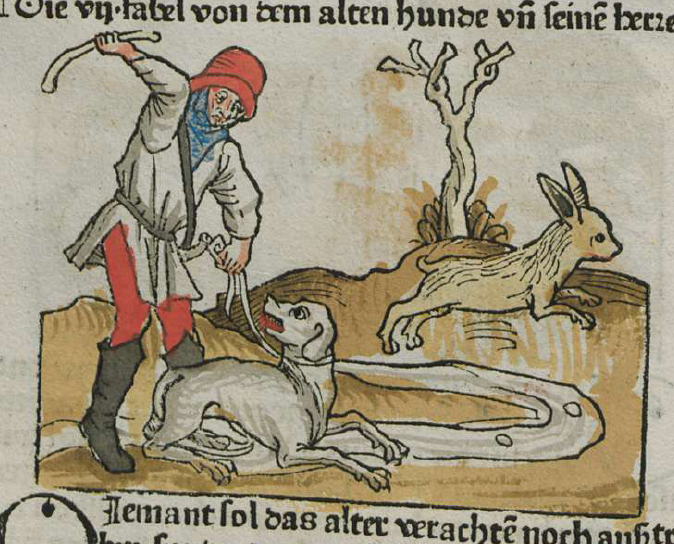
2.07. De cane antiquo et eius domino
Caxton: Of the old dogge and of his mayster
Men ought not to dysprayse the auncyent ne to putte a bak / For yf thow be yonge / thow oughtest to desyre to come to old age or auncyente / And also thow oughtest to loue and prayse the fayttes or dedes whiche the haue done in theyr yongthe / wherof Esope reherceth to vs suche a fable / Of a lord whiche had a dogge / the whiche dogge had be in his yongthe of good kynde / For ye wote wel / that of kynde the dogges chacen and hunten in theyr yongthe / and haue grete luste to renne and take the wyld beestes / whan thenne this dogge was come to old age / and that he myght nomore renne / It happeth ones that he lete scape and go fro hym an hare / wherfore his mayster was sorowfull and angry / and by grete wrathe beganne to bete hym / The dogge sayd thenne to hym / My mayster / of good seruyse thow yeldest to me euylle gwerdone and reward / For in my yonge age I serued the ful wel / And now that I am comen to myn old age / thow betest and settest me a bak / haue memorye how in myn yong age / I was stronge and lusty / And how I made grete oultrages and effors / the whiche caused my yongthe / And now when I am bycome old and feble thow settest nought of me /
This fable techeth that who so euer doth ony good in his yonghte / in his auncyente and old age he shalle not contynue in the vertues whiche he posseded in his yong age
[more info]
No comments:
Post a Comment